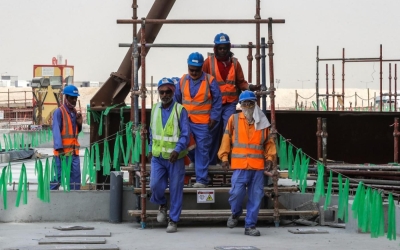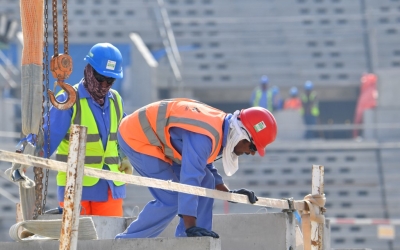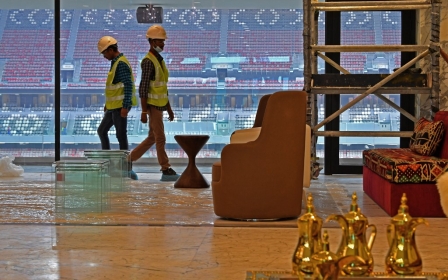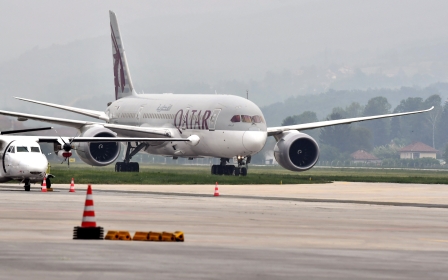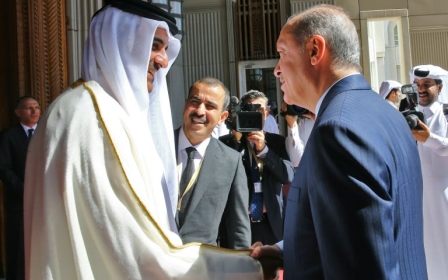Qatar's migrant workers facing 'structural racism', UN report says
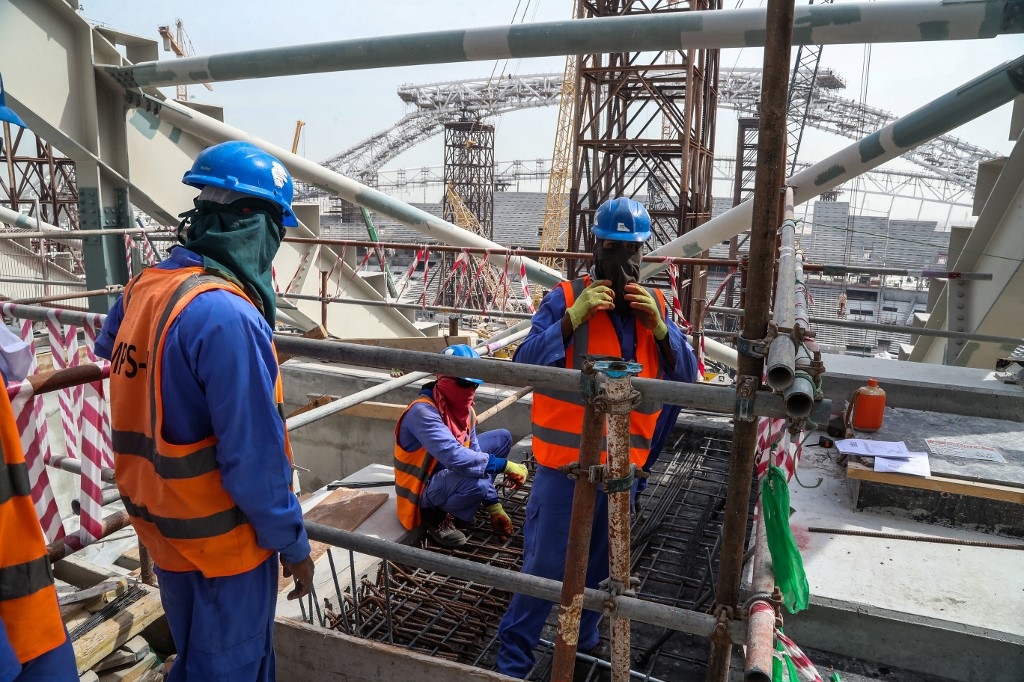
The United Nations has raised "serious concerns" about structural racism towards migrant workers of South Asian and sub-Saharan African origin in Qatar, in a report to be presented to the UN human rights council this week.
The report says there is a "de facto caste system based on national origin" in the Gulf country, and that “European, North American, Australian and Arab nationalities systematically enjoy greater human rights protections" than those from South Asia or sub-Saharan Africa.
Tendayi Achiume, the UN special rapporteur on racism and author of the report, said despite "impressive reforms" by the World Cup's organising committee in Qatar, authorities need to "do more in the light of the persistent complex challenges that undermine its compliance with its international obligations".
About two million migrant workers are employed in Qatar, the majority of them being low-income labourers from South Asia and East and West Africa.
While 18,500 of those workers are currently involved in the construction of stadiums for the 2022 World Cup, tens of thousands more are employed on projects linked to the event itself, including in the hospitality and security sectors.
Low-income workers continue to suffer severe discrimination and exploitation, the report said.
Amnesty International said in a report last month that some workers on a construction project for the sporting event had gone unpaid for seven months.
The salary delays began in 2019 and were exacerbated in 2020 as the country went into lockdown because of the coronavirus.
Qatar's kafala system
The UN report outlined human rights violations that include unsafe working conditions, racial profiling by police, and denial of access to certain public spaces.
Many low-income workers are too afraid to seek justice for labour violations amid the "imbalances rooted in the kafala (sponsorship) system", and workers who flee abusive employers are deemed to be "absconding", the report said.
Achiume said the use of that term "points to the indentured or coercive labour conditions that are the reality for too many low-income workers in Qatar".
Under Qatar's kafala system, employers must provide workers with residency permits to justify their legal presence in the country, and grant them permission if they wish to change jobs.
Qatar announced plans to abolish the system in October 2019, but it continues to be in effect.
In a statement sent to The Guardian, Fifa did not acknowledge the racial discrimination described by the special rapporteur and said the report recognised "the significant improvements that Qatar has made over the past years, and commends Qatar for its openness in engaging with the UN-mandated experts".
Fifa also said it was working with its partners towards "an inclusive tournament experience for all and a firm stance against discrimination of any kind".
Qatar's government cancelled a visit by the UN special rapporteur on slavery scheduled for January, soon after the preliminary findings of the UN report were published.
Middle East Eye delivers independent and unrivalled coverage and analysis of the Middle East, North Africa and beyond. To learn more about republishing this content and the associated fees, please fill out this form. More about MEE can be found here.


